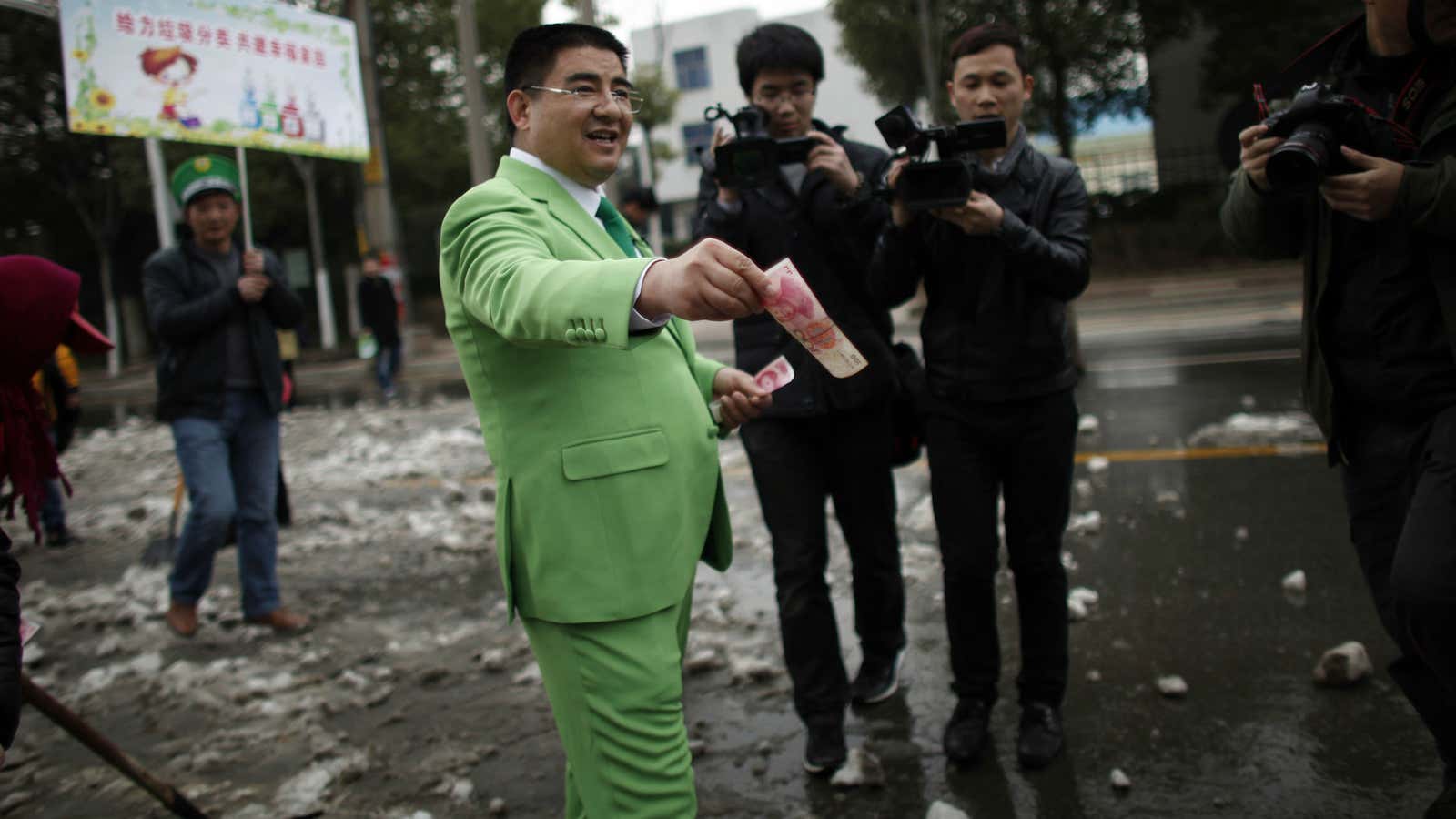A mansion that’s kept hidden from GPS detectors, aunties that speak poor Mandarin but perfect “Vanessa Redgrave English”; dogs named Astor, Trump and Vanderbilt; house maids trained in the royal court of the Thai king; and a fashionista who advises “never ever wear green chiffon unless you want to look like bok choy.” This is the world of three fictional wealthy Chinese families whose life of opulence is being made into a Hollywood film.
We’ve predicted before that, thanks to China’s massive movie-going audience and available capital to invest in Hollywood studios, directors will be casting many more Asians in mainstream films. Today, Aug 7, the production company behind Hunger Games, Color Force, announced that it bought the film rights to Kevin Kwan’s novel, Crazy Rich Asians.
In the plot of Kwan’s book, an ABC, or America-born Chinese, visits her boyfriend’s relatives in Singapore and discovers that he’s heir to one of the largest fortunes in Asia. That represents a shift in the genre often classified as Asian American literature. Instead of exploring the culture gap between second-generation Chinese and their immigrant parents à la The Joy Luck Club, Kwan’s book looks at a newer kind of clash: that between Western, overseas Chinese and crazily wealthy mainland Chinese. In this case, these rich mainland Chinese spend their time flitting between Shanghai, Hong Kong and Singapore.
The coming movie also fits with a fascination, among both general observers and major luxury goods retailers, with China’s emerging class of new rich. (China is expected to surpass Japan this year, as home to the world’s second largest population of millionaires, ranking behind the US.) Many in China’s upper class are still obsessed with brand and bling—a trait Kwan features prominently—though in real life, some are adopting subtler tastes. As Janet Maslin at the New York Times points out, almost no material item in the book is mentioned without its brand named. (“Parker, put down those Pierre Hardy flats or I’ll poke your eyes out with these Nicholas Kirkwood stilettos.” A child told to wear his Gucci shoes asks, “Which ones?”)
Since the likes of the Harold and Kumar series and Better Luck Tomorrow, the film will be one of few movies tailored to Western audiences that has a predominately Asian cast and is set in modern times. “It is a real opportunity for Color Force to cast a movie from the great global pool of Asian talent,” said Nina Jacobson (paywall), CEO of Color Force who will help produce the film. Whether it does well with Western viewers or not, it’s likely to be a hit in China. And that might be what really counts.




